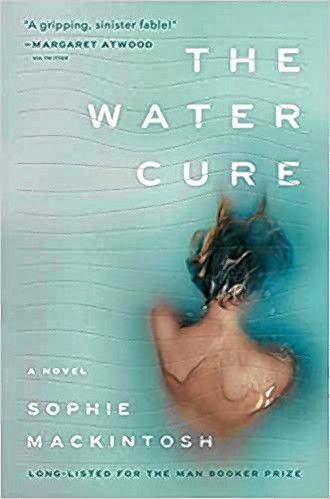The Water Cure
Sophie Mackintosh
2018, 266
Fiction
The Water Cure is a story of familial ties, what strengthens them and what causes them to fray. The book complicates its investigation of nuclear family dynamics by placing the narrative in a time when men have been deemed “toxic” and “poisonous” and are a threat to all – as NPR’s Annalisa Quin points out, “The Water Cure makes toxic masculinity literal.”
Set on a secluded island, The Water Cure features a powerful father figure aptly referred to as King and his maternal counterpart, Mother. In the nature of King Lear, there are three daughters – Grace, Lia, and Sky – that continually exhibit disturbing ideations of love and faithfulness perhaps stemming from their parents’ cruel “love therapies” by which the girls are forced to harm one another or other island creatures as a testament.
The island life that this family leads includes fishing, farming, much lounging, and even more “self-care,” which is more accurately referred to outside of the diegesis as self-harm. Mackintosh brilliantly crafts a slow-burning sense of apocalyptic dread and forces the reader to constantly question the constructedness of the reality that the three girls are living in. Real or fabricated, their shared traumatic coming-of-age in isolation and fear heightens the sisters’ connectedness not easily defined as love or loathing.
Though a little behind in terms of gender – working only to reinforce the gender binary – The Water Cure presents an interesting perspective on notions of the male, family, love and leaving.
Laura Marie Judge Concord Public Library
Visit CPL at concordpubliclibrary.net.









